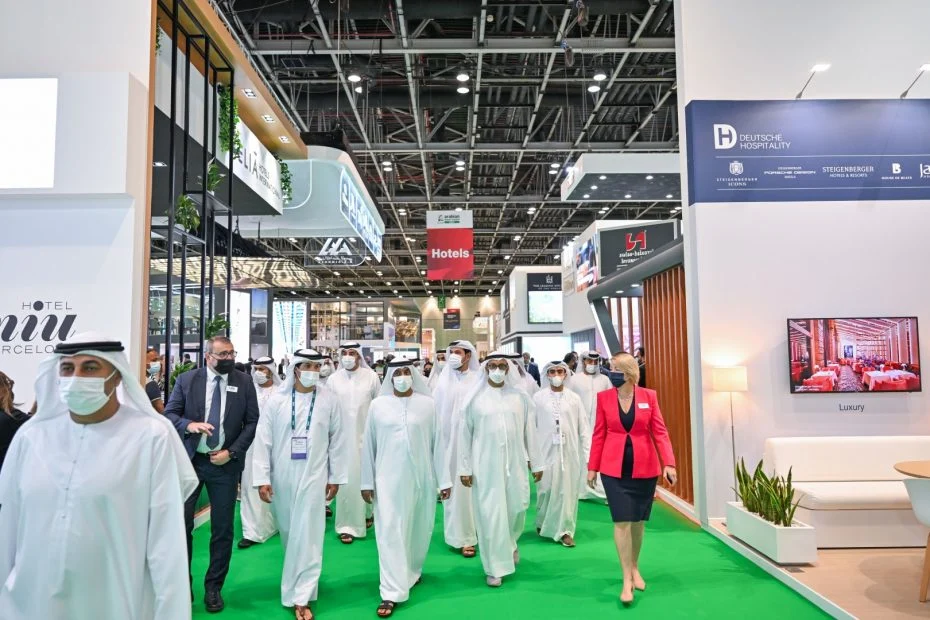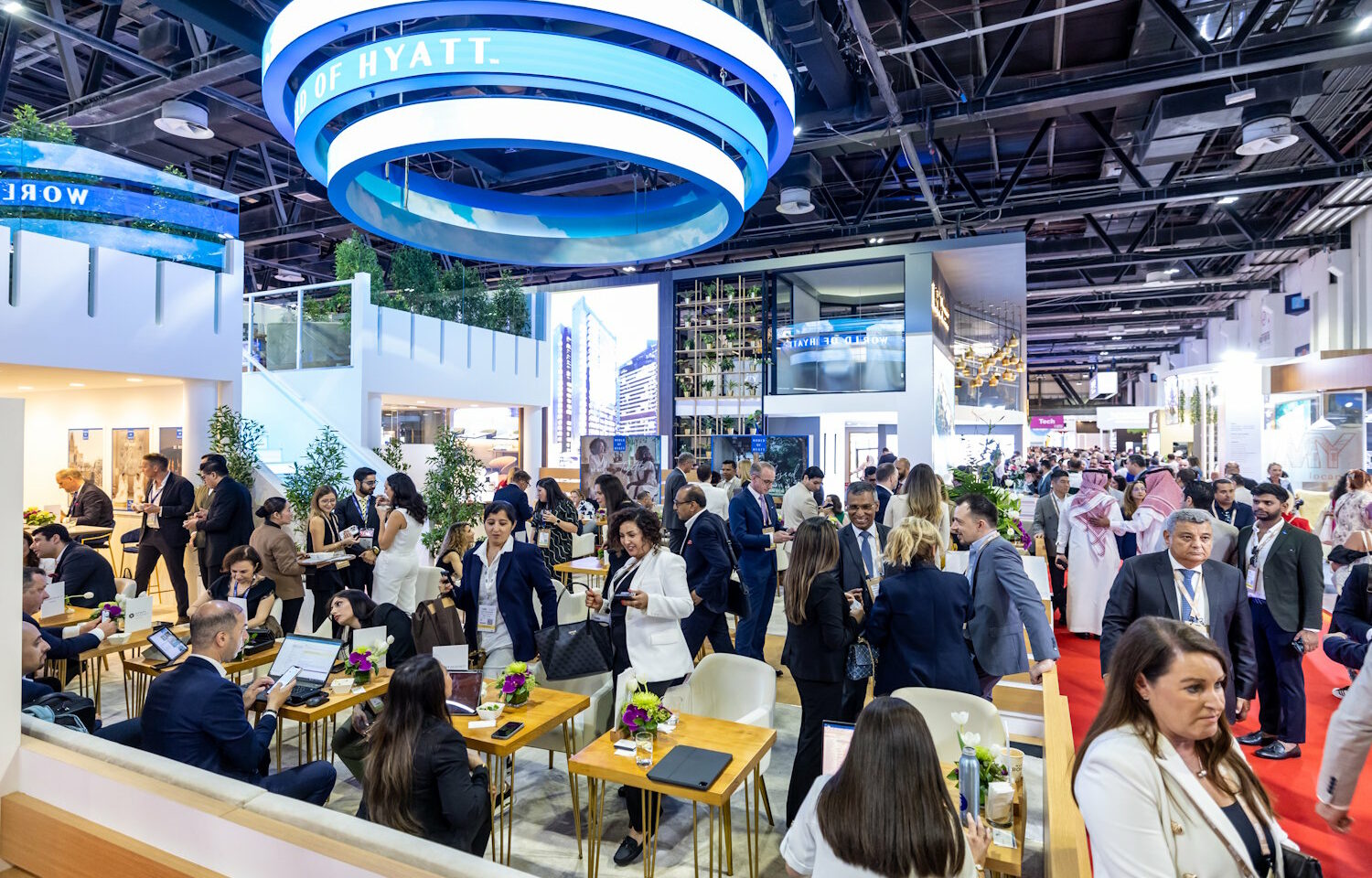The Arabian Travel Market (ATM) 2025, held at the Dubai World Trade Centre from April 28 to May 1, 2025, has emerged as a crucial platform for the Gulf Cooperation Council (GCC) countries—Bahrain, Kuwait, Oman, Qatar, Saudi Arabia, and the United Arab Emirates (UAE)—to showcase their fast-growing hospitality industries. The event underscores how these nations are redefining luxury, tourism, and guest experiences, positioning the region as a global leader in travel and hospitality.

In recent years, the hospitality sector in the GCC has seen exponential growth, driven by government initiatives, increased investments, and a strong focus on elevating tourism experiences. With an expanding portfolio of luxury hotels, resorts, and cultural attractions, the region is witnessing unprecedented development. ATM 2025 has become the ideal stage to highlight these changes, offering key insights into the latest trends and advancements.
Impressive Growth Metrics
The hospitality sector across the GCC has experienced significant growth in the past year, reflecting the region’s resilience and commitment to expanding its tourism industry. In 2024, the GCC recorded a 5.4% increase in Revenue per Available Room (RevPAR) compared to 2023, primarily due to rising occupancy rates. The average occupancy across the region reached 69.5%, surpassing pre-pandemic levels and reinforcing the GCC’s reputation as a premier travel destination.
Additionally, the Average Daily Rate (ADR) saw a 2.4% increase, with luxury hotels playing a crucial role in driving this growth. Over the past decade, the region has added more than 35,000 hotel rooms, with luxury accommodations now comprising nearly 19% of the total inventory, up from 16% ten years ago. The demand for high-end experiences, personalized services, and exclusive hospitality offerings has fueled the need for rapid expansion in the premium hotel sector.
Strategic Government Initiatives
A significant contributor to the GCC’s hospitality boom is the strategic vision of its governments. Through long-term initiatives aimed at economic diversification and tourism development, these nations have set ambitious targets to enhance visitor experiences and attract global travelers.
Saudi Arabia’s Vision 2030 is a prime example of such forward-thinking policies. The Kingdom is investing heavily in hospitality projects, including futuristic cities like NEOM and luxury destinations along the Red Sea coast. Similarly, the UAE’s ‘We the UAE 2031’ strategy focuses on sustainable tourism and infrastructure development, ensuring long-term growth in the hospitality sector.
Qatar, after successfully hosting the FIFA World Cup, is leveraging its enhanced global recognition to boost tourism further. Investments in cultural tourism, sports tourism, and luxury hospitality are evident in new hotel openings and tourism-friendly policies. Bahrain, Oman, and Kuwait are also expanding their tourism landscapes with heritage-based attractions, eco-tourism initiatives, and upscale accommodations catering to a growing influx of visitors.
Luxury Segment Expansion
One of the most striking aspects of the GCC’s hospitality growth is the rapid expansion of the luxury hotel segment. Saudi Arabia alone has over 33,000 luxury rooms currently under construction, a figure that exceeds its existing inventory. This trend reflects a broader shift towards catering to high-net-worth individuals and discerning travelers seeking exclusivity and unique experiences.
ATM 2025 features a strong presence from leading hospitality and luxury brands, including IHG Hotels & Resorts, Jumeirah International, Address Hotels + Resorts, Mandarin Oriental, Four Seasons, Kempinski, and Hilton Worldwide. These brands are not only expanding their footprint in the region but are also redefining the industry through innovative hospitality concepts, integrating advanced technology, and prioritizing guest-centric services.
Emerging Trends and Future Outlook
Several key trends are shaping the future of the GCC’s hospitality industry, influencing how hotels and resorts operate and how travelers experience the region.
- Cultural Authenticity: Travelers are increasingly seeking immersive experiences that reflect the cultural heritage of their destinations. In response, hotels are incorporating traditional architecture, local art, and authentic cuisine into their offerings to provide guests with a deeper connection to the region’s rich history.
- Wellness Tourism: The growing emphasis on health and wellness is driving demand for resorts and hotels that focus on holistic well-being. Spas, wellness retreats, and personalized health programs are becoming integral parts of the hospitality sector, catering to guests looking for rejuvenating experiences.
- Mega-Event Legacies: The successful hosting of large-scale events, such as Qatar’s FIFA World Cup, has had a lasting impact on tourism. These events not only boost immediate visitor numbers but also leave behind improved infrastructure, enhanced global visibility, and a strong incentive for travelers to explore the region long after the event concludes.
- Sustainable Hospitality: With environmental concerns growing worldwide, the GCC’s hospitality industry is prioritizing sustainability. Hotels are adopting energy-efficient designs, waste-reduction initiatives, and eco-friendly operations to align with global sustainability standards. Green building certifications and responsible tourism initiatives are becoming standard practices among leading hospitality brands.
- Technology Integration: Smart hotels, AI-driven customer service, and digital concierge services are enhancing guest experiences. The use of contactless check-ins, virtual reality travel previews, and advanced booking platforms is streamlining operations and catering to tech-savvy travelers who expect seamless digital interactions.
The Role of Arabian Travel Market 2025
ATM 2025 serves as the ultimate networking and knowledge-sharing event for industry professionals, investors, and stakeholders looking to capitalize on the region’s booming hospitality sector. The exhibition features discussions, panels, and showcases that highlight the latest innovations and market trends. It provides an opportunity for businesses to form strategic partnerships and explore investment opportunities that will shape the future of tourism in the GCC.
As the global travel industry continues to evolve, ATM 2025 reinforces the GCC’s position as a leader in hospitality development. The event not only reflects the region’s progress but also sets the stage for further growth in the years to come.
Conclusion
The Arabian Travel Market 2025 has successfully highlighted the remarkable transformation of the GCC’s hospitality sector. With strategic initiatives, an expanding luxury segment, and a focus on emerging trends, Bahrain, Kuwait, Oman, Qatar, Saudi Arabia, and the UAE are redefining their tourism landscapes. These nations are not only attracting visitors but also setting new benchmarks in hospitality standards.
As investments continue and innovative projects take shape, the GCC remains at the forefront of global hospitality growth. The region’s commitment to excellence, cultural richness, and technological advancements ensures that it will remain a top destination for travelers seeking diverse and luxurious experiences. ATM 2025 has solidified its role as a crucial platform in shaping the future of travel and hospitality in the Middle East and beyond.



